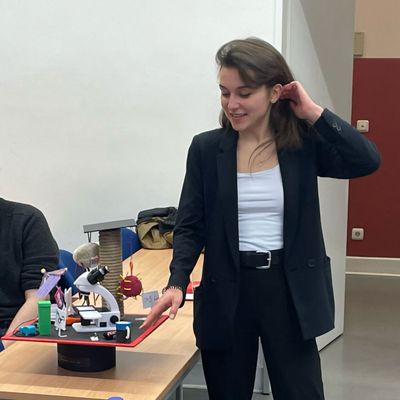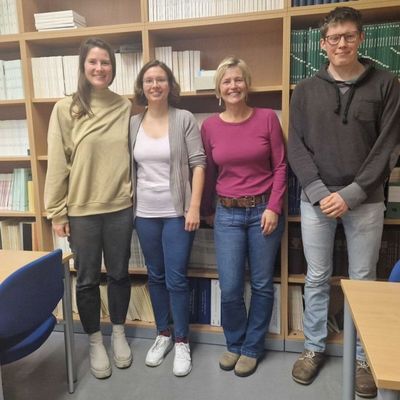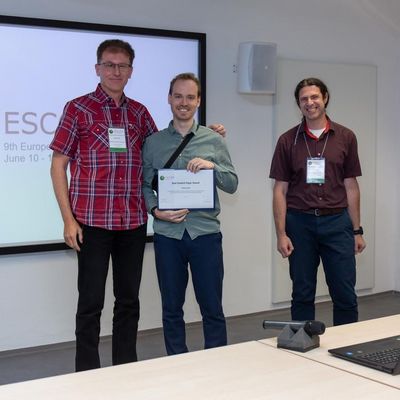Giuliano Santarpia successfully defended his dissertation
Congratulations to Giuliano Santarpia for the successful defense of his dissertation on "RepOdor: a Manually-Curated, Comprehensive Repository of Odorants and their Olfactory Receptors".

Giuliano Santarpia successfully defended his dissertation on "RepOdor: a Manually-Curated, Comprehensive Repository of Odorants and their Olfactory Receptors".
The abstract of his thesis is as follows:
"Even if Olfaction is often neglected in favour of others senses such as sight, its importance from an evolutionary point of view is unmatched. Olfaction was one of the main drivers for the evolutionary jump from sea to land of our ancestors.
In particular, Olfactory Receptors (ORs) played a major role during evolution, helping mammals relate with the outer world thanks to their ability to bind volatile molecules present in the environment, called odorants. This binding event starts a cascade of reactions inside the olfactory sensory neuron that lead to odour or smell perception. Despite this undoubtable relevance, it is still unclear how the Olfactory System is able to discriminate between up to one trillion olfactory stimuli. Unravelling this so-called combinatorial code is central to understanding the smell perception, for both industrial and pharmacological applications.
On one hand, food and beverages companies always had a strong interest in isolating, identifying and extracting the main components from their products in order to enhance the pleasant notes and maintain the obnoxious components below certain levels or, if possible, remove them altogether. On the other hand, despite what their name suggests, ORs are not only expressed in the nose but also throughout the whole body, suggesting their involvement in other physiological and pathological processes besides Olfaction. In this context, the necessity for a deeper characterisation at the molecular, biological and functional levels of ORs and the potential impact that an effort in this direction could exert became clear.
In his thesis, Giuliano Santarpia presents RepOdor, a Repository of Odorants and their ORs. This manually-curated database gathers information on ORs and odorants individually, as well as about their interaction. He aims to complement the actual landscape of available online resources for Olfaction with a tool that focuses on the interactions between ORs and odorants reported in the literature in the last 30 years. Moreover, thanks to the implemented search tools based on BLASTp (for sequence-based receptor similarity) and OpenBabel (for Tanimoto index-based odorant chemical similarity), users will have the chance to find potentially closely related OR-odorant pairs. Thus, RepOdor aims at being a fundamental resource for molecular characterization of OR-odorant pairs, either by reporting already experimentally validated or suggesting new pairs for experimental testing. In combination with the aforementioned other publicly available resources for olfaction, RepOdor may constitute a step forward to unravelling the untapped pharmacological potential of ORs and to decode the individual differences in the perception of food odorants."









